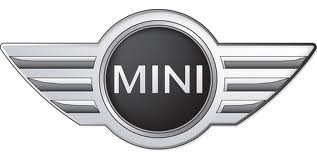Cooper JCW Clubman (R55) L4-1.6L Turbo (N14) (2009)
/l4-1.6l_turbo_(n14)/Page-400001.png)
Coolant: All Technical Service Bulletins
Cooling System - Maintenance/Repairs/Requirements
SI M 17 01 07
Cooling Systems
October 2008
Warranties
This Service Information bulletin supersedes SI M17 01 07 dated October 2007.
[NEW] designates changes to this revision
SUBJECT
MINI Long-Term Antifreeze/Coolant: Maintenance, Repairs and Replacement Requirements
MODEL
[NEW] R56 (Cooper/Cooper S Hardtop/JCW), 2007 MY and newer, since start of production
[NEW] R55 (Cooper/Cooper S Clubman/JCW), 2008 MY and newer, since start of production
[NEW] R57 (Cooper/Cooper S Convertible/JCW), 2009 MY, since start of production
INFORMATION
The cooling systems for the MINI vehicles listed above must only be filled with a long-term ethylene glycol antifreeze/coolant solution containing
corrosion inhibitors that are compatible with aluminum components.
Engine Antifreeze/Coolants for MINI vehicles have four basic functions:
^
Help provide sufficient cooling;
^
Help provide the cooling system with protection against winter freeze-ups and summer boil-overs;
^
Protect various metals (gray cast iron, steel, aluminum alloys, brass, copper and solder) against corrosion; and
^
Prevent excessive silicate gel precipitation, which may cause clogging of the cooling system.
Coolant System Repairs
In conjunction with any repairs where aluminum or metal cooling system components are replaced, drain and completely replace the long-term
antifreeze/coolant. These components require corrosion protection that's only available with new long-term antifreeze/coolant.
For all other repairs involving the draining of partial quantities of coolant, replenish those drained quantities with new long-term antifreeze/coolant. It is
important in order to maintain corrosion protection to not reuse any drained coolant. Always recycle or properly dispose of used engine coolant.
Initial Filling at the Factory and Refilling
The antifreeze concentration of the coolant filled at the factory is valid for all areas of the U.S. and Canadian markets. This should be checked before the
beginning of each winter for sufficient protection against freezing. An antifreeze tester is required to correctly determine the level of antifreeze
concentration.
Diluted or Contaminated Long-Term Antifreeze/Coolant
The corrosion inhibitors of long-term and short-term antifreeze/coolants do not work together, so it is not advisable to mix the two products. Topping off
a long-term antifreeze/coolant solution with a short-term antifreeze/coolant solution dilutes the level of corrosion protection. In an emergency situation,
when long-term antifreeze is not available, top off with water until a long term antifreeze/coolant is obtained. Since adding water will dilute the level of
antifreeze protection, always remember to check and adjust the antifreeze concentration as necessary after such situations.
The color of MINI Long-Term Antifreeze/Coolant is blue; however, the colors of other locally available long and short-term coolants vary. These colors
include green, orange, pink, red or yellow. Mixing MINI Long-Term Antifreeze/Coolant with these different color and types of antifreeze/coolants can
result in a discolored solution in the cooling system. If a discolored antifreeze/coolant solution is found in the cooling system, determine the cause, repair
the vehicle as needed and, if necessary, replace the antifreeze/coolant completely to ensure adequate corrosion protection.
MINI Long-Term Antifreeze/Coolant Chemistry
Long-term antifreeze/coolants utilize Organic Acid Technology (OAT). OAT-type antifreeze/coolant solutions use organic acid salts in place of the
inorganic corrosion inhibitor additives found in traditional short-term antifreeze/coolants. OAT-type corrosion inhibitors are slower-acting, last longer
